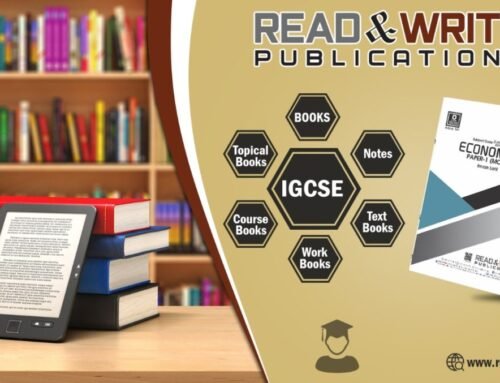As A Level and O-level exams approach, it’s normal for students to experience stress and anxiety. However, managing these feelings is crucial for better performance and overall well-being. In this article, we’ll discuss practical strategies to help students cope with exam stress and anxiety, enabling them to face their exams confidently and clearly.
Prioritize Self-Care
Start by prioritizing self-care during the exam period. Sleep well, maintain a balanced diet, and exercise regularly. Taking care of your body will positively impact your mind and ability to focus.
Develop a Realistic Study Plan
Create a study plan that breaks down the syllabus into manageable chunks. Allocate specific time for each subject and include short breaks between study sessions. A well-structured plan reduces overwhelm and promotes effective learning.
Practice Mindfulness Techniques
Incorporate mindfulness techniques like deep breathing and meditation into your daily routine. These practices can help reduce stress and improve concentration. Take a few minutes each day to clear your mind and find inner calm.
Utilize Effective Study Strategies
Opt for active learning strategies such as summarizing notes, teaching concepts to others, and practicing with past papers. Active learning enhances retention and boosts confidence in your knowledge.
Avoid Last-Minute Cramming
Resist the temptation to cram the night before exams. Instead, review your materials regularly and revise systematically. This approach leads to better understanding and retention of information.
Seek Support from Teachers and Peers
Feel free to seek help from teachers if you have doubts or need clarification. Connect with peers to form study groups to discuss concepts and share ideas. Support from others can ease anxiety and foster a sense of camaraderie.
Reframe Negative Thoughts
Be mindful of negative self-talk and replace it with positive affirmations. Visualize yourself succeeding in your exams and focus on your progress rather than dwelling on mistakes.
Take Breaks and Practice Relaxation
During study sessions, take short breaks to recharge your mind. Engage in activities you enjoy, such as listening to music, walking, or spending time with loved ones. These breaks can enhance productivity and reduce stress.
Conclusion
Managing exam stress and anxiety is essential for students undertaking A and O-level examinations. By prioritizing self-care, creating a realistic study plan, practicing mindfulness, utilizing effective study strategies, seeking support, reframing negative thoughts, taking breaks, and practicing relaxation techniques, students can approach their exams with a clear and calm mindset. Remember, it’s not just about the grades but also about nurturing well-being and building resilience during this challenging but rewarding phase of education.
Can listening to specific types of music help reduce exam stress?
Listening to classical music or certain instrumental tracks, commonly known as “study music,” can promote relaxation and improve focus. The absence of lyrics in these genres minimizes distractions, allowing students to concentrate better while studying.
Are there any scientifically-backed relaxation techniques to manage test anxiety?
Research supports the effectiveness of progressive muscle relaxation and guided imagery for reducing test anxiety. These practices can be learned and implemented to calm the mind and alleviate stress.
How can I balance exam preparation and extracurricular activities without feeling overwhelmed?
Prioritize your study schedule and allocate specific time for extracurricular activities. Engaging in enjoyable activities can relieve stress and provide a break from academic pressures, ultimately enhancing productivity during study sessions.
What are some practical time management tools or apps for organizing study sessions?
Several time management apps, such as Todoist, Trello, or Forest, can help students plan and organize study sessions. These tools provide reminders, to-do lists, and time-tracking features to boost productivity.
How can I combat test anxiety during the exam itself?
Answer: Employ deep breathing exercises or grounding techniques during the exam to stay focused and calm. Take a few deep breaths, close your eyes briefly, and concentrate on the present moment to alleviate anxiety.
Can aromatherapy or scents help with exam stress management?
Answer: Some scents, like lavender or citrus, are believed to have calming properties and may aid in stress reduction. Using essential oils or scented candles while studying or during breaks can create a relaxing environment.
Are any specific foods or dietary tips supporting mental clarity during exams?
Brain-boosting foods like blueberries, walnuts, and dark chocolate can enhance cognitive function. Avoid excessive caffeine and opt for balanced meals to maintain steady energy levels.
How can I overcome test anxiety if I’ve had negative past experiences with exams?
Acknowledge that past experiences do not define future outcomes. Practice positive self-affirmations, visualize success, and focus on your progress in your current preparations.
Is there any scientific evidence supporting the benefits of using colored pens or highlighters while studying?
Using colors in notes and highlighting important information can improve memory retention. Color-coding key concepts aids in better information organization and recall.
Can participating in physical activities like yoga or stretching before exams help reduce physical tension and nervousness?
Absolutely! Engaging in gentle physical activities before exams, such as yoga or stretching, can alleviate bodily tension and promote a sense of relaxation, positively influencing exam performance.





[…] you’re really struggling with exam anxiety and blanking out, don’t hesitate to ask for help. Talk to your teacher, a school counselor, […]
[…] anxiety that last-minute cramming often brings. You’ll be better prepared mentally, and your stress levels will be […]